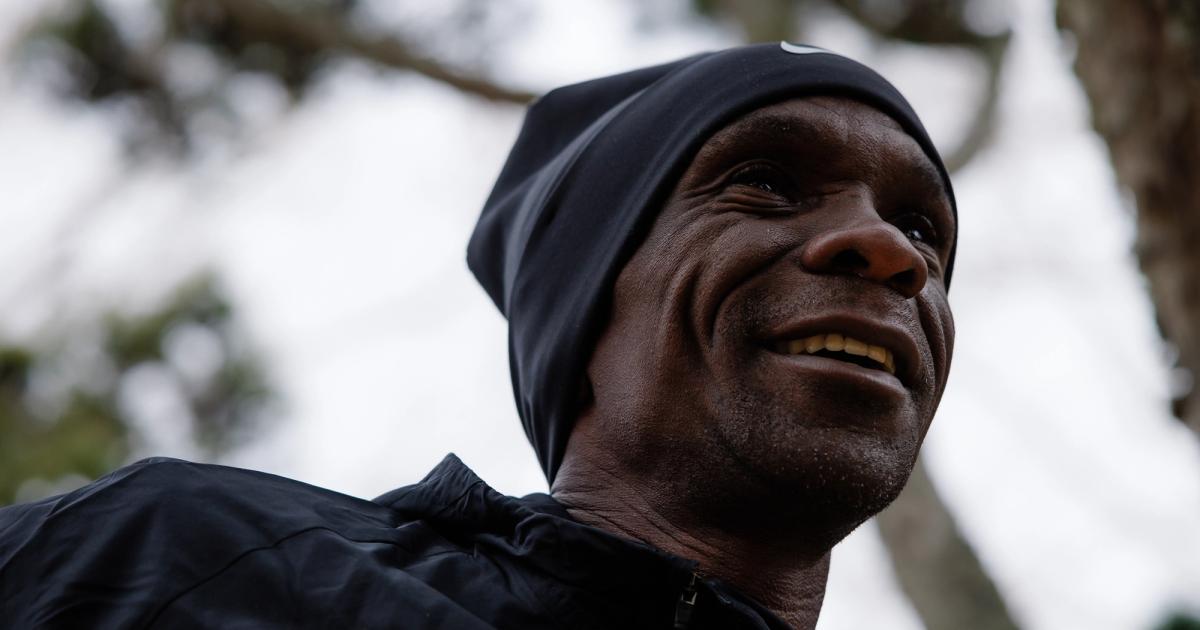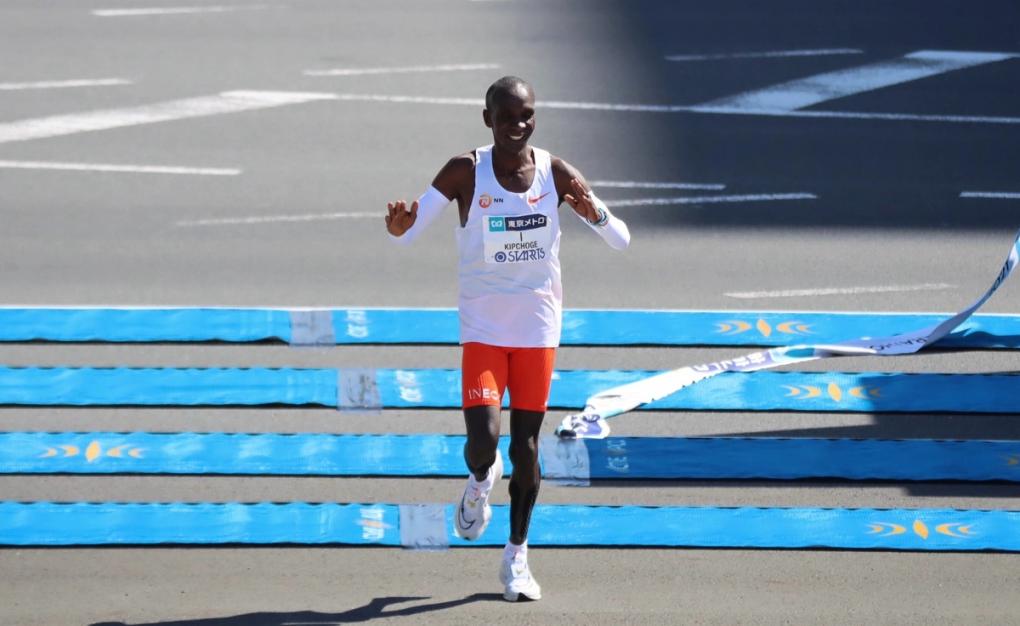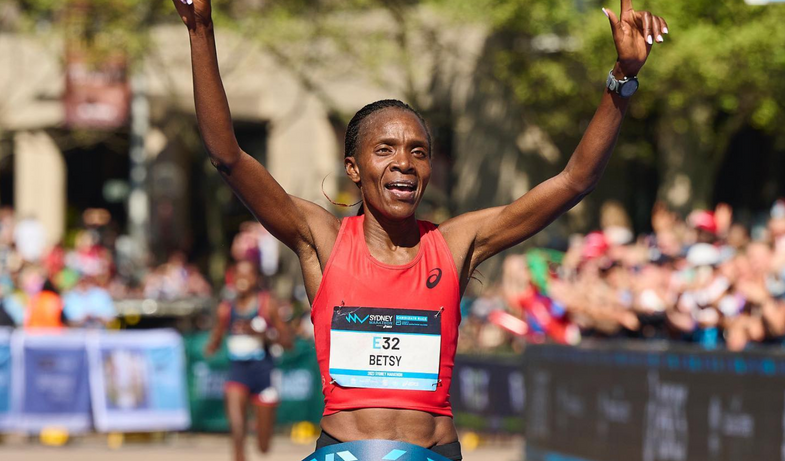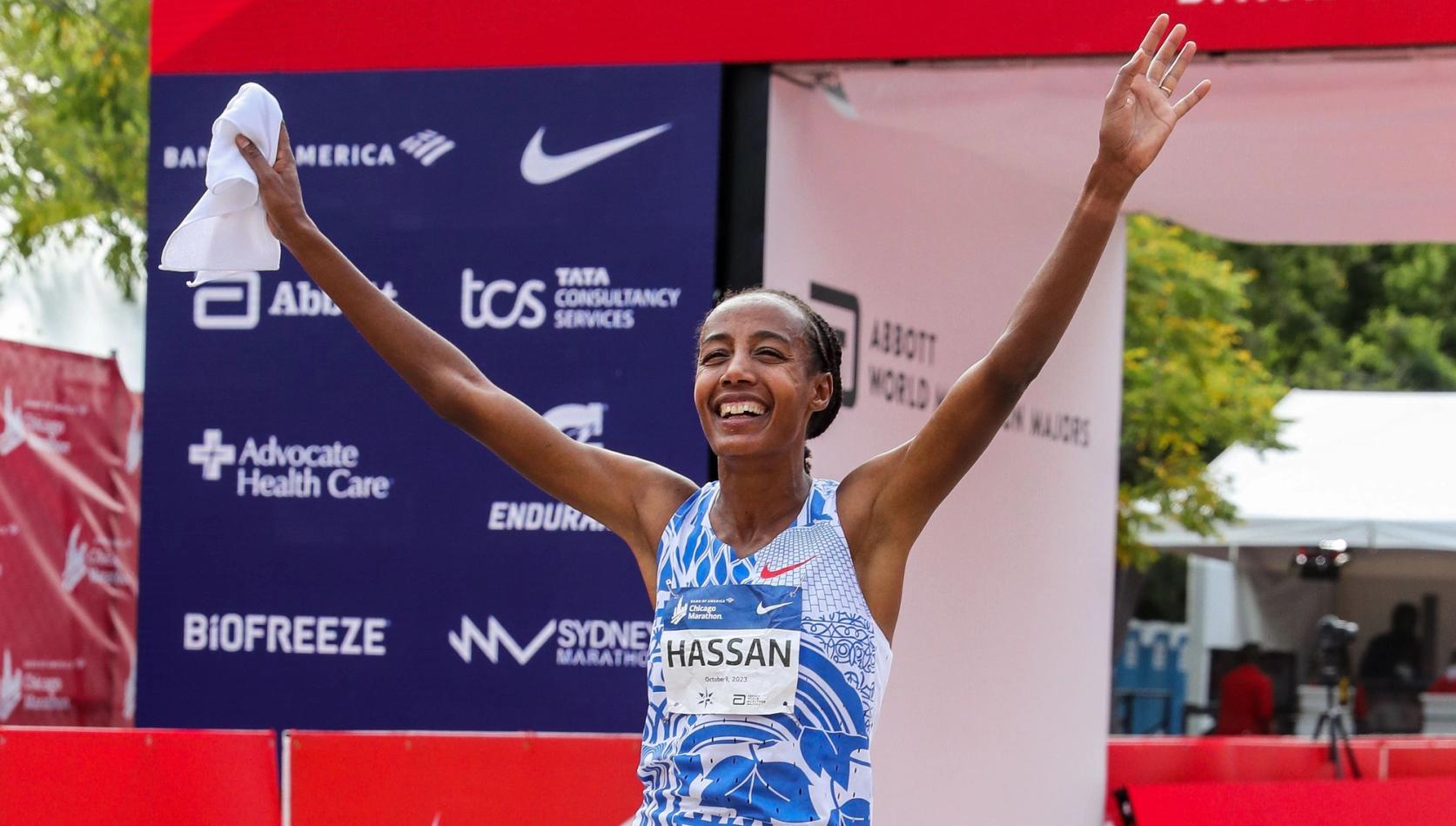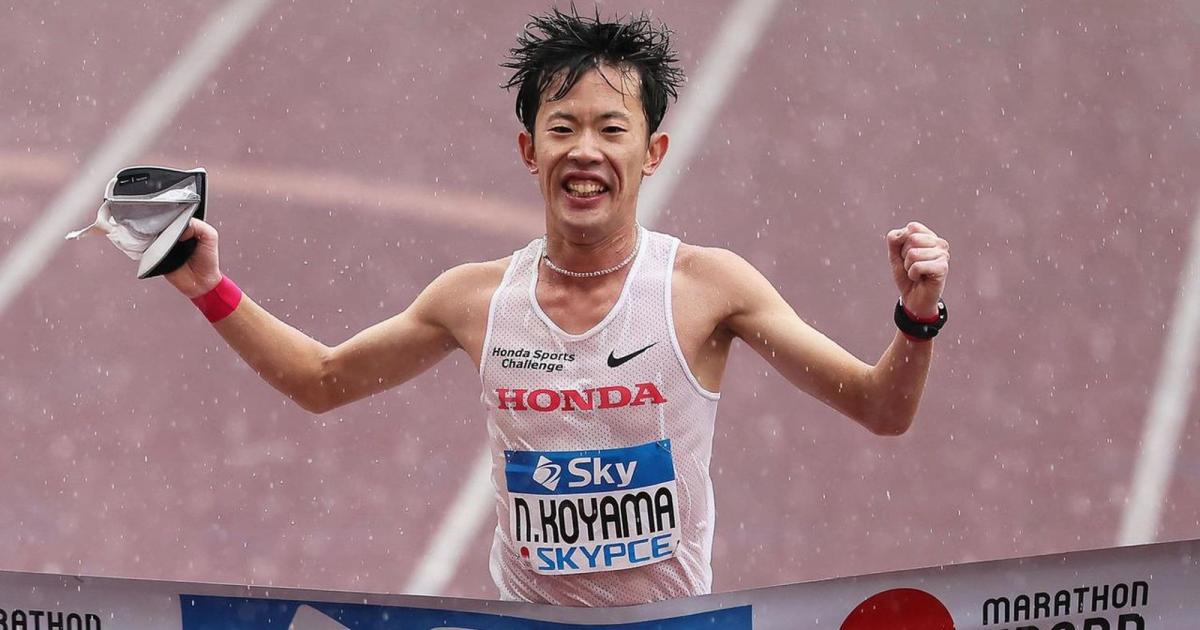By Owen Corbett
March 2, 2024
Just as the indoor season wraps up, but before the outdoor season is upon us, we take to the roads for the first World Marathon Major of the year. Two of the sport’s biggest stars return to the site of their most historic successes at the 2020 Olympics, while many rising stars try to become household names. The 2024 Tokyo Marathon will set the table for 26.2 mile racing this year and has massive implications on the field for the Paris Olympics this summer itself.
Here’s what you need to know:
Kipchoge’s Olympic Three-peat Tune-Up
No man has ever won three consecutive Olympic marathons, but that is exactly what Eilud Kipchoge will be trying to do this summer if he is selected for the Paris Games*. To put in perspective how incredible that is, no man has ever won three consecutive golds in any distance event, and the only man to do it on the track is Usain Bolt (100m, 200m). While Kipchoge’s status as the greatest marathoner of all time isn’t up for debate, a strong performance in Tokyo would go a long way toward suspending the conversations of his decline.
In 2023, Kipchoge made his Boston Marathon debut, and due to a leg injury, recorded the slowest time of his career, and a sixth-place finish. Even in his “get right” race in the fall, Kipchoge took home his fifth Berlin Marathon win, but his 2:02:42 was his slowest time on the course since 2017, and he had multiple runners closing in on him in the final miles after a blazing first half.
Kipchoge’s decision to return to Tokyo, where he won both his last Olympic title and the Tokyo Marathon in 2022, is similar to his choice to run Berlin over New York in the fall. He is returning to a familiar race where he feels comfortable, and it gives him ample time (five months) to recover for Paris, assuming he is selected.
*The two other men to win back-to-back marathon gold: Abebe Bikila (1960-64) dropped out of the 1968 Olympic marathon 10 miles in with a stress fracture in his fibula. Waldemar Cierpinski (1976-80) missed the 1984 Olympic marathon due to East Germany’s boycott of the games. Both athletes retired from marathoning in the year of their potential three-peat.
Sifan Hassan Returns To Tokyo For More History
Speaking of stars with prior success in Tokyo, throughout her buildup to this marathon, Sifan Hassan has stressed the importance of her unprecedented 2020 Olympic triple (10,000m gold, 5000m gold, 1500m bronze) as a reason why she chose to return to Tokyo.
In 2023, Hassan once again attempted the triple at the World Championships in Budapest – taking home two medals and literally falling just meters short of a third – but added to her ambition by debuting in the marathon earlier in the year. The track star took home the win in her first-ever race over 26.2 in a wild London Marathon, and followed it up with the second fastest time in history last October in Chicago, a race which took place just six weeks after the World Championships.
If Hassan wins in Tokyo, she’ll be halfway to becoming the first athlete to win at each of the World Marathon Majors, something that only someone with the fearlessness of Hassan would even attempt to do. She would also become the first woman to win three different major marathons in the span of two years since Irina Mikitenko, who won at London and Berlin in 2008, followed by London and Chicago in 2009 (the four races were all among the first five marathons of Mikitenko’s career, similar to the immediate success of Hassan)
The Other Contenders To Watch
While a highly competitive field has not stopped Hassan from winning a major marathon before, she has several top-notch contenders to fend off if she wants to continue her winning ways. Reigning world champion Amane Beriso – the fifth fastest woman in history – has flown under the radar recently without a true World Marathon Major win, but she has only one loss in her last five races over 26.2, and it came at the hands of the one woman who may rival Hassan for the title of greatest marathoner in the world right now, Hellen Obiri. Also in the race are two of the last three winners in Tokyo, Rosemary Wanjiru and Lonah Salpeter. Those looking for a dark horse will want to watch Sutume Kebede, coming off a victory over Obiri at the Houston Half Marathon in January.
On the men’s side, if Eliud Kipchoge has a kryptonite, his name is Benson Kipruto. The former Boston and Chicago champion is the only man in history to beat Kipchoge twice in the marathon, finishing ahead of the GOAT in London in 2020 and Boston in 2023, and has never lost to Kipchoge. This is Kipruto’s first time running Tokyo, and like Kipchoge, is looking for a strong performance to improve his chances of being selected for the Olympic team*. Other contenders include last year’s champion Chalu Deso, and 2023 World Champion – and Kipchoge’s NN Running teammate – Victor Kiplangat, who has finished in the top two of four of his last five marathons.
*Two other men in the race were among the ten named to Athletics Kenya’s provisional marathon team for Paris announced back in December: 2:03 men Timothy Kiplagat, and Vincent Ngetich, who ran the second fastest debut marathon in history last fall in Berlin, running the second half of the race nearly a minute faster than Kipchoge
Besty Saina’s Redemption
Headed into the U.S. Olympic Trials, Betsy Saina was one of the most popular picks among fans and experts alike to finish top three in the women’s race and make her return to the Olympics. Saina was in a good position for the majority of the race and was among a five-woman pack competing for third place 21 miles in. Less than a mile later, the pack thinned to three, and then two as Saina veered off the course and laid flat on her stomach in a patch of grass among spectators.
Saina didn’t think that running more than three-quarters of the race wore her down too much, as she was announced as a late addition to the Tokyo Marathon less than two weeks later. Saina will be returning to Tokyo, where she set her personal best last year finishing fifth, just 29 days after her effort in Orlando. While Saina will have to wait four more long years until she can get another shot at her first Olympic marathon team – when she’ll be a few months shy of 40 – she’s not wasting any time capitalizing on her current fitness. This decision hints that Saina believes she's in great shape, and means we should keep an eye on the all-time American leaderboard if she runs another personal best.
You can catch her appearance on the CITIUS MAG Podcast recapping last year's run in Tokyo below:
Japanese Olympic Team Implications
At the Japanese Marathon Trials back in October, Naoki Koyama and Akira Akasaki secured their Olympic team spots by finishing first and second, but Suguru Osako’s third place finish only earned him a provisional spot. The sixth place finisher at the 2020 Olympics would have to wait to see if any men ran under 2:05:41 at any of three domestic marathons. Back in December the Fukuoka Marathon was won in 2:07:08, and last weekend the Osaka Marathon produced a surprise winner in 21-year-old Kiyoto Hirabayashi but his time of 2:06:18 wasn’t quick enough to overtake Osako. This leaves just the Tokyo Marathon as the final, yet toughest, challenge that Osako’s Olympic spot must endure.
On the women’s side Yuka Suzuki and Mao Ichiyama locked in the top two spots in October, while Ai Hosoda was left in limbo. The Tokyo Marathon however does not factor into the women’s provisional spot, it is based on results of January’s Osaka Women’s Marathon and the Nagoya Women’s Marathon next weekend. Back in January, Honami Maeda broke the longstanding Japanese record in Osaka with a 2:18:59 clocking (well below the 2:21:41 standard for the third spot), and is in a strong position to make her second Olympic team.
American fans will not see much of a change in the qualification status of Leonard Korir who currently sits 70th on the Road To Paris list (any American besides Conner Mantz and Clayton Young need to be among the top 80 on May 6th for the U.S. to open up a third spot for Korir) as there are no men listed in the elite field from countries that do not already have three men with the automatic qualifying standard.

Owen Corbett
Huge sports fan turned massive track nerd. Statistics major looking to work in sports research. University of Connecticut club runner (faster than Chris Chavez but slower than Kyle Merber).
